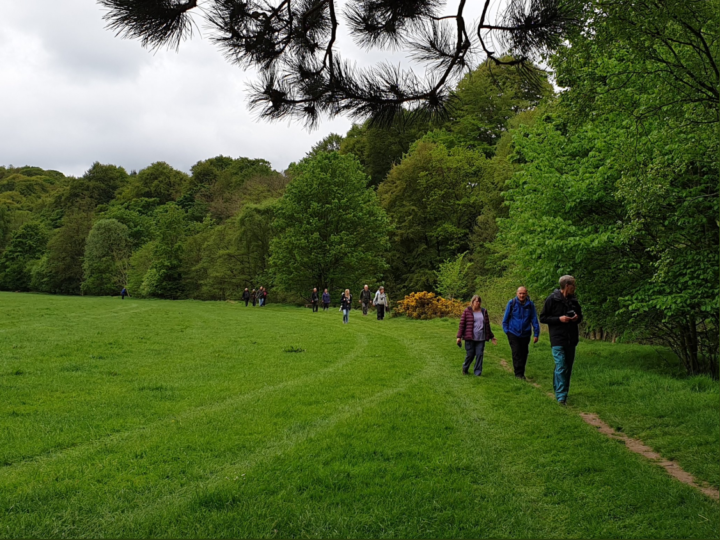The woodlands of Allen Banks represent some of the most diverse in our region, part of the reason the site currently enjoys designation as a Special Site of Scientific Interest (SSSI). Here, in a landscape dominated by gnarled oaks and copious blooming wildflowers, visitors can enjoy a suite of bird species hard to come by in the wider countryside. The very reason we chose this particular National Trust property for our latest NHSN field trip.
By 10.00am the persistent rain that had plagued the morning had mercifully stopped, and many birds had begun to sing. While the short walk from the car park to the wood proved uneventful, upon entry visitors enjoyed excellent views of a female Goosander alongside 11 ducklings. Here too, numerous Goldcrest could be heard in full song and a Nuthatch showed briefly in the branches of a Beech.
Heading uphill towards the tarn, we caught up with the first of the day’s target species: Pied Flycatcher. The bird in question, a male, heard singing incessantly for ten minutes or so but showing only briefly. A second bird was seen for a split second in the trees surrounding the tarn itself, where Willow Warbler, Chiffchaff, Blackcap and Stock Dove were also observed. Sadly, the hoped-for Wood Warblers failed to materialise here – a trend which continued throughout the visit. Bad luck perhaps? or a sorry testament to the continued decline of this elusive migrant in our region?

Concluding proceedings in the upper reaches of the wood with an all-too-brief Roe Deer sighting, by lunchtime, we opted for a slow walk back. Thankfully, things took a positive turn here with a third male Pied Flycatcher observed in a stand of riparian alders – showing well on this occasion. Better still was the presence of a superb Spotted Flycatcher, first noted in the same tree thus allowing for side by side comparison.
Departing, a pair of Grey Wagtails were enjoyed for a short while on the river – always a pleasure.
Both I and Sacha will be leading another walk to Powburn and Ingram valley in a few weeks time. Here, we hope (hope being the key word here) to enjoy Whinchat, Cuckoo, Ring Ouzel and other species synonymous with upland Britain. Please do come along – there are still a few spaces left.
James Common, NHSN Communications Officer